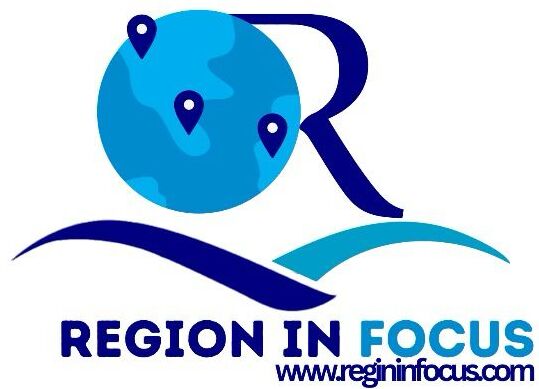Introduction
Moral and political, the issue of refugees is one of the acute nowadays. Millions of people are seeking safety and dignity, and these wars, persecution, natural disasters and impacts of climate change are pushing them out of their homes. However, although the problem of refugees is of global relevance, the impact of accommodating and securing displaced people is disproportionately exposed. The concept of responsibility sharing, which holds that every country plays a fair part in ensuring that refugees are given protection is one of the fundamental principles of the international refugee regime, yet it is still very elusive.
The Scale of the Crisis
UNHCR has reported that there are over 114 million persons in the world today who are forcibly displaced, which includes refugees, asylum seekers, and internally displaced people. The majority of refugees are being accommodated not by the rich countries but by their direct neighbors–poor and middle-income countries with scarce resources. As an example, tens of millions of refugees are hosted by countries such as Turkey, Pakistan, Uganda, and Lebanon, whereas relatively limited numbers are admitted or altogether banned by many high-income countries. This gap reveals the necessity to have a more reasonable system of shared responsibility.
International Law.
The most powerful tool in protecting refugees is the 1951 Refugee Convention and the 1967 Protocol which set the principle of non-refoulement no refugee should be sent back to a location where he or she is likely to be persecuted. Nevertheless, even these instruments do not include direct requirement to the states to share the responsibility of hosting refugees. Rather, this system is based on voluntary collaboration and ad hoc agreements, which result in gaps in protection and inequity in burden-sharing. This was addressed with the Global Compact on Refugees adopted in 2018, which aimed at offering more predictable and equitable assistance to the host states, but is non-binding and relies on political goodwill.
Harmonic Inequality and Politics.
The unequal distribution of the responsibility has contributed to the rise of political tensions among and between nations. Public services, labor markets and social cohesion become strained in most host states, which results in anti-refugee sentiment and political backlash. In richer countries, populist forces have capitalized on the migration fears to support restrictive asylum policies, offshore processing, and externalization of the borders. These forces threaten to dilute the international protection regime of refugees and erode solidarity when the global displacement is at an all-time high.
Humanitarian and Development Aspects.
Refugee crisis is not merely a humanitarian crisis but it is a developmental crisis. Most refugees have years or even decades in the exile, which are the condition of protracted stay with a low level of access to education, medical services, and jobs. Host nations, particularly with weak economies, need to have long-term international assistance to absorb the refugee and keep the society stable. Connecting humanitarian aid to development assistance, also known as the humanitarian-development nexus, can be useful in empowering host communities and can enhance the results of the refugee and locals.
The Role of Wealthier States
There are various ways in which wealthier countries can aid other countries without necessarily hosting the refugees. They can raise resettlement quotas, give monetary aid to front line states, facilitate capacity building and invest in conflict prevention and stabilization activities in the countries of origin. However, these commitments are too frequently less than needs. In other cases, such as resettlement, every year less than one percent of refugees in the world are helped, placing millions in a state of limbo. To have a realistic system of global responsibility sharing would entail binding commitments and open monitoring in order to make sure that commitments are acted upon.
Local Strategies and Technology.
Certain areas have been leading in new methodologies of protecting refugees. The invocation of the European Union Temporary Protection Directive, which was used in the Ukrainian crisis, provided quick legal protection and assistance to millions of refugees. In Africa, Kampala Convention on internal displacement establishes progressive principles of safeguarding people displaced due to conflict and calamities. Nevertheless, these campaigns are still biased and tend to be reliant upon political conditions instead of being founded on conviction. A more genuine global strategy would be to coordinate regional work in a more encompassing context of collective responsibility.
Future Displacement and Climate Change.
The issue of responsibility sharing will also be even more serious due to the increasing occurrence of climate change. Increasing sea levels, severe weather and scarcity of resources will keep on displacing tens of millions of people in several decades. There are gaps in legal coverage and protection of climate-displaced persons, as the current refugee law fails to explicitly address such persons. The international cooperation must go proactive and come up with norms and funding mechanisms and avenues of relocation before the pressures end up crushing the current systems.
In the direction of Equitable Responsibility Sharing.
Resolution of the refugee crisis needs to shift to practical implementation as opposed to rhetoric. A new global compact may be based on binding quotas to resettlement, predictable funding to host countries, equitable process to asylum seekers and so forth. Collaborations among governments, international organizations, civil society and the private sector can as well increase chances of refugee self reliance that will decrease dependency on aid in the long term. After all, a just responsibility sharing should acknowledge that refugees are not a liability, but a collective human duty and, perhaps, a renewal of social and economic benefits.
Conclusion
The issue of refugee crisis puts moral character and political will of the international community to the test. Although the displacement cannot be remedied by an individual country, all countries can contribute to alleviating the misery of people who are made to escape. The principle of the global responsibility sharing is not an ideal that is only on paper, but it is a necessity to the legitimacy of the refugee protection system and its efficacy. Since displacement keeps on increasing, the question is not whether we can afford to share responsibility or not, but whether we can afford not to.


